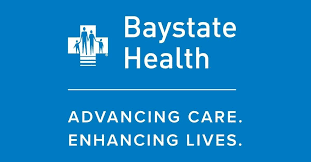A program in rural Massachusetts that identifies mothers with opioid use disorder and provides comprehensive services during the prenatal and postpartum period
Baystate Franklin Medical Center’s (BFMC) Engaging Mothers for Positive Outcomes with Early Referrals (EMPOWER) program was founded in 2015 by the Franklin County Perinatal Support Coalition, a group of over 20 human service organizations.
The EMPOWER program has made great strides in treating mothers with opioid use disorder (OUD) and addressing neonatal abstinence syndrome (NAS) in a rural part of Massachusetts. After screening for maternal OUD, eligible mothers meet with the EMPOWER nurse navigator who offers educational support, referrals to care, and helps develop a personalized pregnancy plan (more on protocol here).
Women are referred to a peer mentor recovery coach who provides support and helps the mother navigate services and engage with community resources. Mothers are educated about NAS, what to expect during their pregnancy and hospital stay, and the important role they provide in caring for their baby. Efforts are made to attenuate the power imbalance between provider and patient, especially as it relates to points of contact with Massachusetts Department of Children and Families (DCF).
In the past, services were discontinued at birth, but it is known that mothers with OUD are most at risk for overdose death between 6 and 12 months postpartum. In response to a desire to expand services, BFMC applied for and received a $1 million, two-year “Moms Do Care” grant from BSAS as part of a SAMHSA grant.
The new Moms Do Care EMPOWER program extends the continuum of care allowing women to enroll from early pregnancy through 36 months postpartum. Expanded services include care coordination, counseling, expanded peer support, and a pediatric clinic for long-term follow up.
The community-based model also partners with the Franklin Family Drug Court and Sheriff’s office, providing support to women who are involved in the criminal justice system. Obstetric and medications for opioid use disorder (MOUD) providers collaborate to educate women on the benefits of MOUD during pregnancy and support prevention through access to birth control.
There is much emphasis on empowering women, alleviating fear and stigma, community collaboration, and mitigating perceived oppression by the state through mandates and policies. Video of a presentation on this program can be viewed here. This program has also been featured in the Rural Health Information Hub and includes contact information here.
Rates of breastfeeding initiation and continuation, mean neonatal birth weight, and length of hospital stay were greater in the postintervention group.









